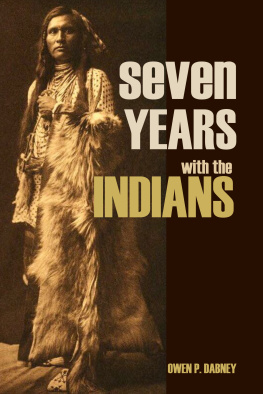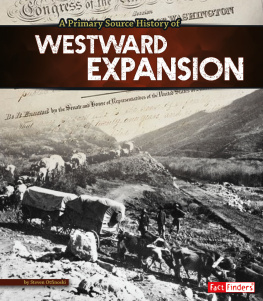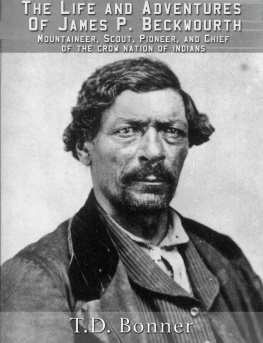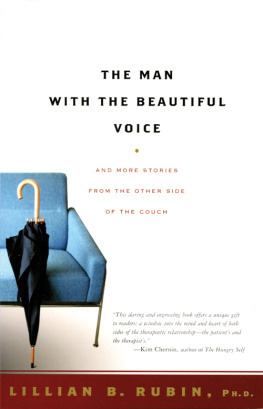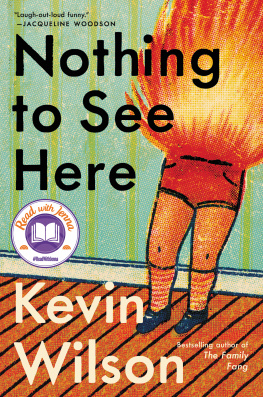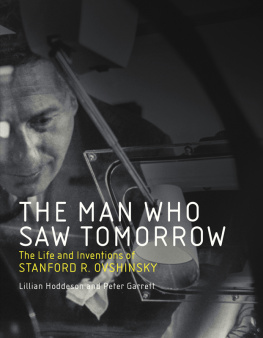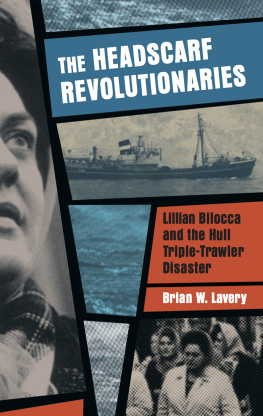
SEVEN YEARS
WITH THE INDIANS
OWEN P. DABNEY
1897
COPYRIGHT 2017 BIG BYTE BOOKS
DISCOVER MORE LOST HISTORY AT BIGBYTEBOOKS.COM
BACKGROUND TO THE STORY
It is altogether possible that the author of this true tale used pseudonyms for the protagonists. I could not find census records for any of the principle characters in Iowa, Wyoming, or Montana. The author appears in city directories in the west during the period in which the book was published. It is interesting to note that one person in his story, Robert Bently, appears in census records for Winterset , Iowa in 1905, a town in which the author had lived in 1877. Perhaps he knew them previously but he does not mention that in his narrative.
The author provided little information about the route of travel taken by the pioneers in his story. Given their departure point in western Iowa and the fact that they were in Sioux country, it is likely they traveled through Nebraska to the west. As he mentions that they were advised at a fort that the Sioux had gone north for the season, they were undoubtedly traveling in late spring or early summer, probably in 1862. The fort may have been Fort Laramie, in present-day Wyoming.
The Nez Perce Indians, with whom Lillian Ainsley lived for seven years, had a reservation encompassing 7.7 million acres (31,000 km) in present-day Idaho, Oregon, and Washington. They also roamed into areas of Montana. Their famous chief, Joseph, assumed leadership of the tribe in 1871, shortly after the story told below.
Owen Perry Dabney was born on November 7, 1850 in Vermillion, Illinois, to Henry Dabney and Mariah Stanfield. His first marriage, to Nancy Ellen Bard in 1871, left him a widower with six children in 1878. He was then married to Inez Harding in 1879, with whom he had eight children.
Dabney had a number of professions in which he prospered, including farming, cattle ranching, real estate in Salem, Oregon, a furniture salesman in Hood River, Oregon, and a second-hand store in Portland. It may have been while he and his family were living in Livingston, Montana, that he happened to meet the people about whom he wrote below. He retired to Los Angeles in 1920 and died there on May 21, 1921.
FAREWELL TO THE OLD HOME
About forty years ago John Ainsley and Robert Bently who had been warm friends since early boyhood and who had lived upon adjacent farms for many years, resolved to break loose from the many ties which bound and endeared them to their old home in western Iowa, and seek new homes in the far west.
Mr. Ainsleys family consisted of his wife and two daughters, Lillian who was then fourteen and little Bessie who had just passed her eighth birthday; while Mr. and Mrs. Bently had but one child, Mathew, aged fifteen.
In those days it required a great deal of bravery and enterprise to start out as these families did, not only leaving home and friends, but leaving civilization behind them. The undertaking was fraught with so much risk and danger that people who sought new homes in the west rarely returned inside of many years if ever.
At that time the maps of the west were very incomplete, but after careful consideration Mr. Bently and Mr. Ainsley decided to follow up the Missouri River for a considerable distance and then bear off more to the westward.
Mr. Ainsleys parents lived about twenty miles distant and only a little off the route decided upon and so it was arranged that both families would stop and spend a few days at the old homestead.
Nearly half a century before this the elder Mr. and Mrs. Ainsley and a few others, including Robert Bentlys parents, had started out as their sons were now doing to what was then known as the far west and had settled upon this land when it was a part of the wilderness. Here they had lived and grown old together; here their children were born and had grown up to manhood and womanhood.
They had seen the wilderness transformed into a settled and prosperous country. The Pottawattamie Indians had gradually given way to the white settlers until now the land of the red man was dotted over with farms and villages, the country was no longer new, and people were again pushing on to the westward.
It was nearly noon when the wagons pulled up at the old Ainsley place. It being the latter part of August the weather was dry and hot and traveling very tedious and it was with a feeling of great relief that they climbed down from the dusty wagons.
Father and Mother Ainsley were expecting them and were now coming down the long path through the garden to meet them. The children rushed into their grandparents arms. After many warm greetings had been exchanged old Mrs. Ainsley led the way to the house, followed by the feminine portion of the party, while Father Ainsley and the rest set about caring for the horses, cattle, chickens, etc., which the Bentlys and Ainsleys were taking with them on their long journey across the country.
The day was very warm but a visitor at the old Ainsley place was never conscious of the extreme heat, for the house was surrounded by fine old oaks and elms which were mere shrubs when the land was settled by Mr. Ainsley nearly fifty years before, and the soft breeze was fragrant with the odor of these sweet old fashioned flowers which always grew in Grandma Ainsleys dooryard.
The table was set out under one of the old elms and dinner was ready and waiting when the men came up from the barn. The dinner, like everything else about the place, was old fashioned and delicious and being served as it was, out in the shade of the trees among the birds and the flowers, an undescribable [ sic ] charm was added to the sweet restfulness of the occasion.
After the children had finished their dinner and gone off about their play, the older people lingered a long while and visited, there were so many things to talk about and the time of parting was drawing so near.
All tried to appear cheerful but there was an undercurrent of sadness which was very hard to cast aside.
The starting away of these young people into the far west recollect to the elder Ainsleys the time when they themselves had left their old New England home and had said to their parents and friends as they bade them farewell, We will come back again in few years. They recalled how the few years had lengthened into many and how, finally, when it was possible for them to return it was too late, the dear parents were no longer there to greet them; the loved ones whom they would have returned to see had been quietly lain away to rest in the old church yard. Time had passed on and they were now bending under the weight of nearly seventy years and they fully realized that this parting would also be a final one.
Not so with the younger Ainsleys, just starting out into a new life where they would find new surroundings, form new ties and gradually grow away from the old. While they exceedingly regretted leaving their aged parents, still they were reconciled by the thought that they would surely return within a very few years and take their parents back with them to their new home in the west.
But as their visit drew to a close and the time of parting was close at hand they found it far harder to bid farewell to the parents and the old home than they had anticipated. They wandered about, here and there, among the happy scenes of childhood. Each tree and flower, the songs of the birdseverything seemed to remind them that they were leaving the home of their youth, possibly never to return.
The children were the only ones who were light hearted and happy. How they reveled in the beautiful surroundings of the dear old place, romping in the meadows where the men were making hay; or roaming through the woodland, gathering wild flowers and berries; or wandering along the sandy bars of the old Missouri River, with their fishing tackle and well filled lunch, baskets.
Next page
